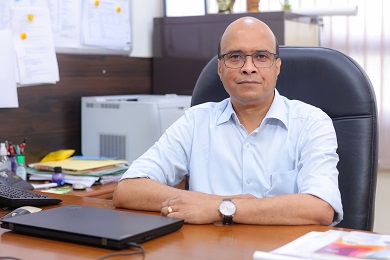Welcome

Welcome to the Department of Mechanical Engineering at IIT Kanpur. We started our journey in the year of 1960. Over the last six decades, we have grown our expertise and competence in the core Mechanical Engineering curriculum and research....
- Read More
-Prof. Ashish Dutta
Head, Department of Mechanical Engineering
Announcements
PG Admissions
- List of candidates from CFTI selected for provisional admission for PhD program in Mechanical Engineering for the session 2025-26-I.New
- Syllabus for the PhD entrance exam [Link]
Postdocs and Faculty positions
Syllabus: Kinematic pairs, diagrams and inversion. Mobility and range of movement. Displacement, velocity and acceleration analysis of planar linkages. Dimensional synthesis for motion, path and function generation. Dynamic force analysis, flywheels. Inertia forces and balancing for rotating and reciprocating machines. Cam mechanisms, Cam profile synthesis. Gears and gear trains.
Credits:7
Prerequisites:ESO 209
Syllabus:Phase-change Thermo-physics, Equations of state, Phase diagrams, Phasestability and spinoidals, Interfacial tension, Free energy, Wetting and hysteresis.
Credits:9
Syllabus: Introduction to design of systems and machine elements; Modes of failure, strength, stiffness and stability; Failure theories; Fatigue failure; Probabilistic approach to design; Design of Bolted and Welded joints, Helical compression springs and leaf springs, Spur and Helical gear sets; Selection of Rolling contact bearings; Design of shafts. Lab sessions: Detailed design of the above machine elements starting functional specifications to final sizing; Design of a subsystem involving multiple machine elements. Introduction to use of techniques like FEM for design.
Prerequisites:ME 231
Syllabus: Introduction. One-dimensional and Two-dimensional Steady and Transient Conduction. Forced Convection over a flat plate and inside tubes. Natural Convection over a vertical flat plate. Mass Transfer. Boiling and Condensation. Heat Exchangers. Thermal Radiation. Heat Transfer Applications.
Credits:10
Credits:6
Syllabus:The primary objective of the course is to teach fundamentals of computational method for solving non-linear partial differential equations (PDE) primarily in complex geometry. The emphasis of the course is to teach CFD techniques for solving incompressible and compressible N-S equation in primitive variables, grid generation in complex geometry, transformation of N-S equation in curvilinear coordinate system and introduction to turbulence modelling.
Credits:9





























